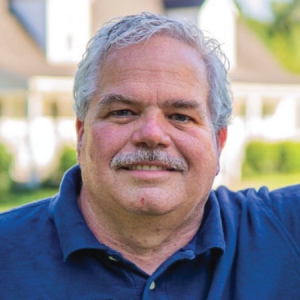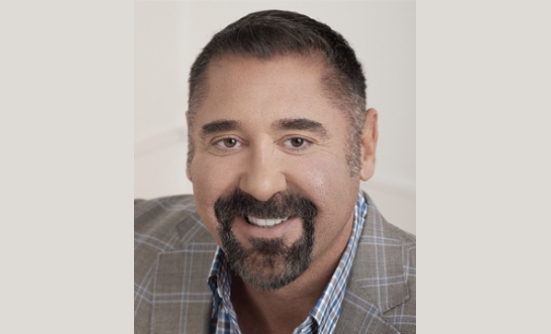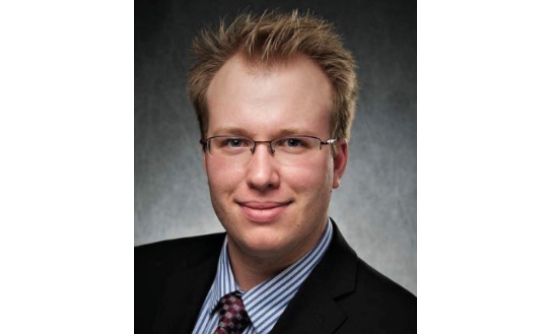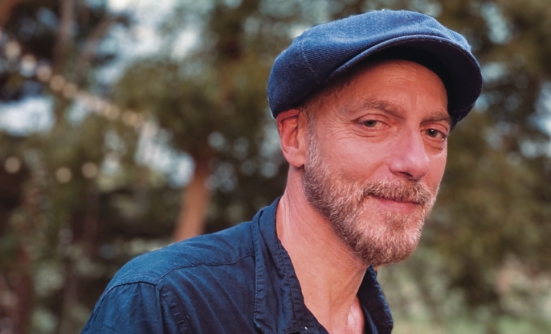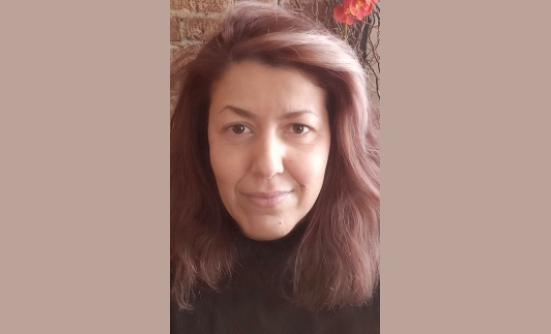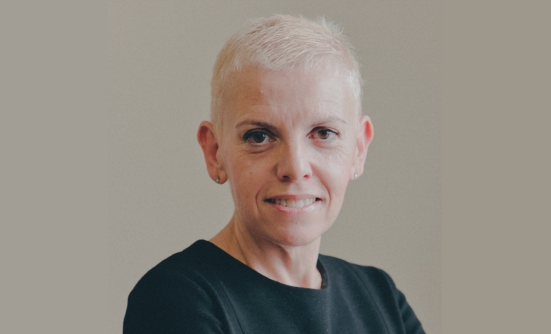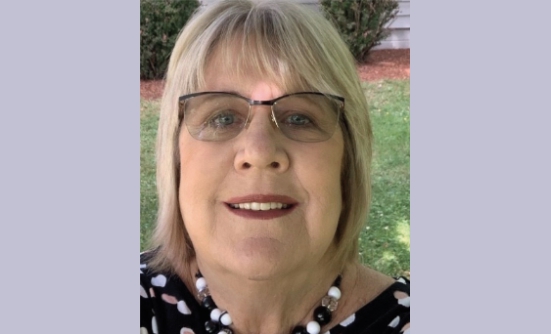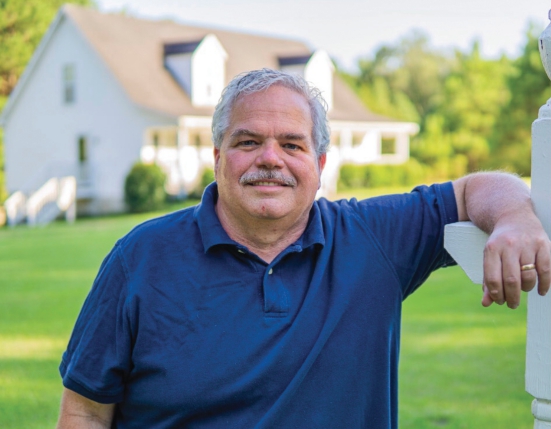
When I was diagnosed with stage IIIB colorectal cancer in May 2018, I could not have gotten through it without the love and support of my wife, Michelle Bullock. I remember returning to the waiting room after my colonoscopy that day to talk to the doctor about my cancer diagnosis. Everything was just a blur, I felt sick and could not focus on anything the doctor was saying.
Crashing Down
I knew what was coming, because I saw the tumor on the monitor during the procedure. It was a 7-cm tumor right in the middle of the sigmoid region of my colon. I had chosen to be awake during the procedure, and I had seen enough images online to know what it looked like on the monitor.
My life as I knew it was about to come crashing down on me.
My wife just grabbed my hand and held it, as the doctor said those 3 words no one ever wants to hear: “You have cancer.” Somehow, her holding my hand was like hitting a pause button, and I was able to focus on what the doctor was saying.
My wife started taking notes, because her journey as a caregiver was beginning, just as my journey did as a patient with cancer.
She let me know from the very beginning that we were in this together, no matter what happened next. I know that for some patients with cancer this is not always the case. I am truly blessed to have this person in my life.
My Wife’s Patient
I have always appreciated my wife’s profession as a nurse, and the way she cared for other people. Over the 29 years of our marriage, I always made sure that when she got home at night, she was able to leave her life as a nurse at work. I hated that now when she was coming home to her husband, she was coming home to a patient.
That hurt me more than being diagnosed with cancer, and the treatment itself. I hated that I brought this burden on us, but she took it all in stride and never complained. She reminded me that it’s why we got married in the first place, and that we are devoted to each other in this life.
My wife was steadfast in helping me to figure out all the clinical things I had to deal with during my treatment. She would even gently remind me to take my chemo pills, which I was in the habit of “forgetting” at times. That dang chemo brain!
She also reminded me in a subtle way that I was probably her worst patient. I definitely agreed with that. At the same time, she reassured me she would walk to the ends of the earth for me. I am definitely a blessed man.
Sad and Broken
In no way have I ever thought of myself as a depressed person. One day at my treatment appointment, my oncologist noticed how sad and broken I appeared as a man. By then, he had known me for a few months, and noted that this didn’t seem like me.
He encouraged me to speak with a therapist who was available at my cancer center that day. I think that I was so caught up in myself that I didn’t realize how depressed I was.
My wife, however, encouraged me to meet with the therapist, because the emotional toll had gotten to be too much for her, and she needed me to find someone else to be a “sounding board” in my cancer journey. That’s exactly how she described it, and I could tell I had to do this for her.
At the time, I wasn’t really talking with anyone else about my cancer. As patients, I think we need to learn how to put the word “care” back into “caregiver.” Although I was a bit reluctant to see a therapist, I went to appease my wife. I realized it was a simple way to give back to her and support her as a caregiver.
Working on Mental Health
I don’t think I would have gone to see a therapist if she had not encouraged me to do so. Studies show that when patients are taking care of their own mental health during cancer treatment, they have far better outcomes. I think that a patient’s mental health is not discussed enough at the beginning of a cancer diagnosis. And I am grateful to my oncologist for being concerned about my mental well-being as much as my physical well-being, while I was treated for cancer.
The first time I met with my therapist, we created a sort of a map of my diagnosis, to see what had led me to this point of struggling with depression. Being helpless and sick wasn’t something I was used to, especially around my family.
For 20 years before my cancer diagnosis, I was a pre-kindergarten teacher and a stay-at-home dad. I would jokingly say that I was a “trophy husband” and enjoyed that pastime. Now, suddenly, I was losing my identity as a man.
I felt that I appeared weak and could no longer fulfill my roles as a teacher, a husband, and a father. I felt that cancer had taken my true identity away, and it saddened me greatly. I felt uncomfortable in my own skin, and I didn’t like to talk about it at first, until I opened up to my therapist.
I told my therapist that the first time I felt a loss of identity while having cancer was when we were moving our daughter into her college dorm room. My job was to unload the car while my wife and daughter decorated her room.
I couldn’t even get through one trip from the car without feeling I was going to collapse physically. I was so frustrated, that I just sat on a bench and wept, while they took the other items from the car to her room.
The chemotherapy was wiping out my energy. No one blamed me that day for not being able to do my part, but I felt guilty that I could not help. I was waiting to have all this over, so I could get back to being myself. I didn’t know who this person was, or how to accept the associated emotional turmoil.
Clearing the Dark Clouds
Then I started to worry that the cancer might spread, and I would not return to the man I was before cancer entered my life. That is probably when the depression started to take over. I felt that a dark cloud hung over me all the time, and that is likely why I was so brokenhearted and depressed in my oncologist office that day.
As the months progressed, I found that the more I opened up to my therapist about my cancer journey, the better I felt, because I wasn’t holding those frustrations inside. It did not take away the fear and worry of having cancer, but it allowed me to accept the journey ahead of me and to be an active participant in my treatment plan.
This also supported my caregiver as she helped me with finding my bearings. Going forward, not every day was filled with positivity, and the negative thoughts would still creep in at times, but I knew how to ask for support from my wife and from other friends.
This change took the burden off my wife as my primary caregiver. It allowed me to be an active participant in her journey as a caregiver, and to support her. As patients, we need to find ways to put the word “care” back into our caregivers.
After my personal experience with cancer, I now lead a Facebook group, “The Howling Place,” which is part of the manuptocancer.com platform created by my friend and fellow cancer survivor, Trevor Maxwell. Our almost 2,000 male members are offering emotional support to members while they battle cancer.






